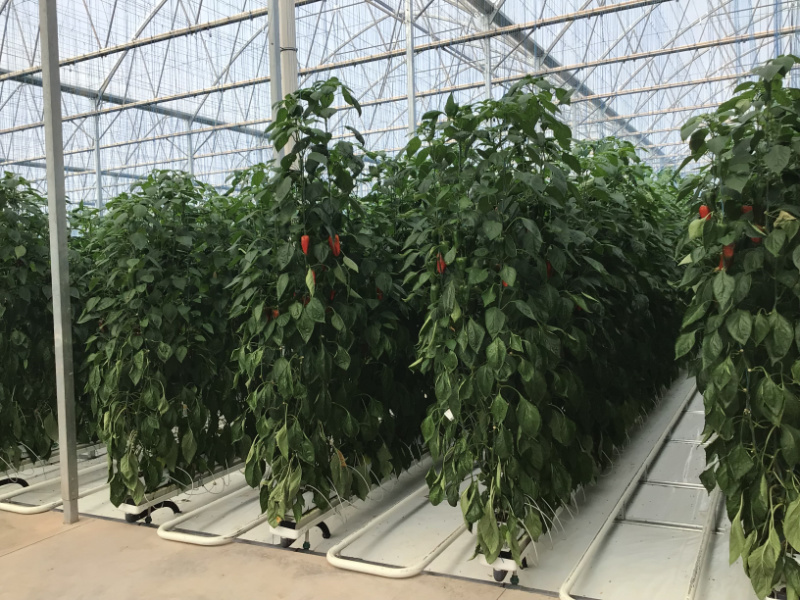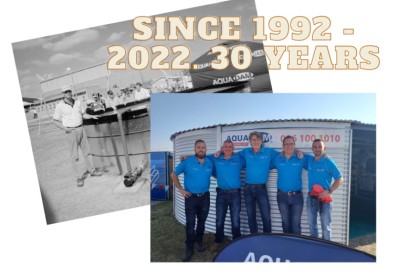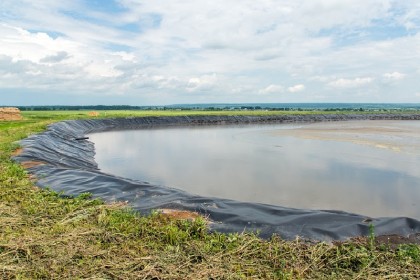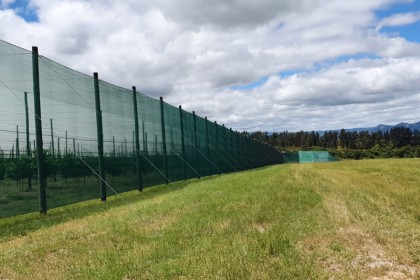
Emseni Farming, Meeting The Challenges Of Food Insecurities
Emseni Farming is situated on a 550-hectare piece of land between Stanger and Greytown in Kranskop, Kwa-Zulu Natal (KZN), at the edge of the Tugela River and the Valley of a Thousand Hills. Since it was founded over a half century ago, its main purpose is to benefit the rural community. It is a farm where the community and farm owners work together for sustainable farming that benefits all the stakeholders.”
Emseni grew steadily over the years and plans are already in place for more growth. It is now known as one of the biggest hydroponically grown pepper producers in South Africa, with complete greenhouses on 11.5 hectares of land. The latest project, comprising 3 hectares of greenhouses, opened only this year. It is a flagship project which combines the latest technologies.
In the early 80s the growing of vegetables in greenhouses at Emseni started with an idea from the founder, Reverend Erlo Stegen. To sustain his missionary; and his humanitatian work over a broad spectrum, he has implemented and spearheaded numerous agricultural and other projects for various income streams. His project dynamics have benefitted many rural communities over years and his legacy will continue to do that.
Gremah Khwela (born in 1946) started to work at the farm in the early days, and she currently still works there. She has many stories to tell about how the founder helped her community by preaching the gospel while showing them how to farm. She says, “I was there from the beginning. I felt, and I saw the love he (the founder) has for my people. The lesson that I learned from him is that you pray for what you need. Here (at Emseni), God works with blessings, and not everybody will be happy with the work. Despite that, God’s work is growing...”
All the projects were inspired by the founder. Apart from the numerous agricultural projects and the mission Stegen has pioneered, he started to provide schooling and affordable tertiary education to the remote communities over many decades. To date he took care of over 18 500 youths struggling with drug addiction while carrying the costs of reaching over 5 500 schools across the country from 2010–2020; warning youth about the dangers of drugs. Through his intervention, many ex-drug addicts that received help through his intervensions are currently supporting their own families and benefit from his job creation activities and many now work at the farm.
One such happy person is the technical manager, Keegan Pillay, who works at the greenhouses at Emseni where hundreds of thousands of bell peppers are grown. He is one of the many broken people who annually come to the Mission for help. Once he was helped with his addictions and saved, he decided to help others by staying and working on the farm. Keegan says, “ I came to a place of restoration. I started off by thinking that I would only come for 21 days a few years ago … but I am still here. I have learned new skills and I am privileged to work at Emseni Farming. For me there is no other place in the world like this.”
Emseni also believes in farmer-to-farmer learning and therefore on-farm practical demonstrations in sustainable agriculture are done along with free practical workshops. The community is assisted to make use of the available land and are given seedlings also.
Themba Mzobe heads up the nursery at Emseni which is registered at the Department of Agriculture. He has a BA in Psychology but has chosen to work at Emseni following in his mother’s footsteps, as it gives him much joy. Themba clearly enjoys his work, especially because he can pass on his knowledge and experiences to his community through training and mentorship programmes. Emseni Farming has a memorandum of understanding with the Maphumulo Tropical Cooperation to provide training and mentorship programmes to upcoming farmers. The membership of the cooperation is growing annually.
Themba says, “Emseni regularly expands its enterprises and looks after its members. I follow Reverend Stegen’s advice … People must be self-sufficient. I help people to grow avocados. I started liaising with the local chiefs so they can inform the community how to grow and experiment with avocados. In my information sessions with groups, I also focus on other tropical fruits such as litchis and macadamia nuts.”
The agricultural projects are characterised by pioneering exploitation rather than settled cultivation. More than a half century ago, the farm consisted of virgin land with hectares of wattle plantations. The lack of infrastructure such as electricity and running water, and few job opportunities, made it complicated for the locals to earn a decent living or farm successfully to provide for their needs. Stegen has changed the circumstances and is making an impact in the daily lives of the community it serves through his numerous projects and intervensions.
Sustainable and eco friendly
In line with its sustainability objective, Emseni Farming has diversified over years and agriculture activities now include avocado and various fruit cultivation, a dairy, making compost and hydroponically grown lettuces and sweet peppers. The farmers use peaceful and environmentally friendly methods into the farming activities. Beehives set up among the avocado tree orchards assist with the movement of pollen between plants and produce avocado-flower honey.
The small plants in the greenhouses are grown in coco peat growbags on special gutters which keep the plants off the ground. They use the waste obtained from the greenhouses (such as old coir bags pruning waste and old plants which are removed annually) together with other waste from the mission to make compost. The compost is used back into the farm, mainly in the avocado orchards, and helps to improve the soil structure.
Pests are biologically controlled with tiny insects, imported from the Netherlands and Israel. The greenhouses are individually climate controlled using customised controllers and computer programmes. Temperatures in the houses are closely regulated and the irrigation solution includes drain water which is recycled and UV treated. Types of peppers planted include bell peppers (green, red, yellow, and orange) and conical peppers. They harvest about 2 500 tons of peppers annually and the main supermarket chains are supplied.
Making a huge impact
To ensure food security the founder created and developed a sustainable farm that makes an impact on the local remote community and generations to come. Job creation and skills development spans over several areas which starts from the germination of the plants, through to the packaging thereof.
Emseni is a community-based operation and it is the biggest employer in the immediate area. The workers earn an honest living and they can support their families with dignity. Job opportunities in the area are hard to come by, so the numerous projects are like a beacon of light for the communities.
As a community-based business, one of the core values and focus of Emseni is the upliftment of and support to rural communities. With the revenue generated from the various businesses that run the agricultural projects, the founder and his helpers have been able to expand operations to assist more people and finance its outreach and missionary programmes. Many community and sporting events throughout the country are sponsored through the business operations. The outreach programmes include local feeding schemes for orphaned children, an HIV/Aids care centre, and a broad spectrum of community projects such as the food and water distribution programme to distressed communities after the recent unrest.
The community is actively involved in the development of the farm and its many projects. The farmers and its communities have been working together for many years to bring upliftment and to change lives for the better. The various farming projects ensure various income streams that benefit the community directly. Various marketing campaigns and outreach events frequently have local participation that directly benefits the communities.
It takes a farmer-at-heart, a visionary leader, dedication, and hard work to farm successfully and sustainable. Reverend Erlo Stegen’s calling prompted him decades ago to start community vegetable garders to feed his ever-growing churchgoers. He has build a legacy over those years that will benefit generations to come. What stands out at Emseni is the founder’s strong belief that labour can achieve it highest potential if farm workers are educated and empowered, and he has lived by his strong believes. Over years he has developed small holder and emerging farmers one step at a time; and many of them are now successful farmers and provide for their families. Emseni Farming has created a blueprint for agricultural farming that can solve South Africa’s complicated agricutural challenges!
(Watch the following Utubes on Emseni Farming: New Emseni Farming Greenhouses; Emseni Farming Avocado project; Emseni, place of grace (drone footage). An electronic version of the thesis, Erlo Hartwig Stegen: A Missiological evaluation of his life, ministry and teachings, is available on the website
Emseni Farming in a nutshell
Avocado’s
Hectors under trees - 170 Hectors.
Total trees - 51 000 trees.
Produce per year - 2 100 Tons.
Type of avocados - Hass, Pinkerton, Ryan, Fuertes, Ringtone, Lamb
Export - 60 to 70 % of produce.
Bell peppers
Hectors of greenhouses - 11.5 Hectors.
Produce per year - 2 500 Tons.
Type - Bell Pepper: Green, Red, Yellow, Orange, Conical
Dairy
Holstein herd - 750 cows. (Including heifers and calf’s)
Cows been milked p/d - 350 cows.
Liters per day. - 8 000 Liters
Bonle products:
Yogurt p/y - 100 000 Liters
Amass p/y (Calabash milk) - 440 000 Liters
Juices p/y - 35 000 Liters
Other products
Dragon Fruit, Mangoes, Litchis’, and Papayas.












